25-27 June 2019
The visit of Can Loc District hospital, selected to participate in ECOMORE study conducted by NIHE, has allowed to better understand the environment and the organization of the project at hospital level. Can Lộc is a rural district of Hà Tĩnh Province in the North Central Coast region of Vietnam and patients are mostly farmers.
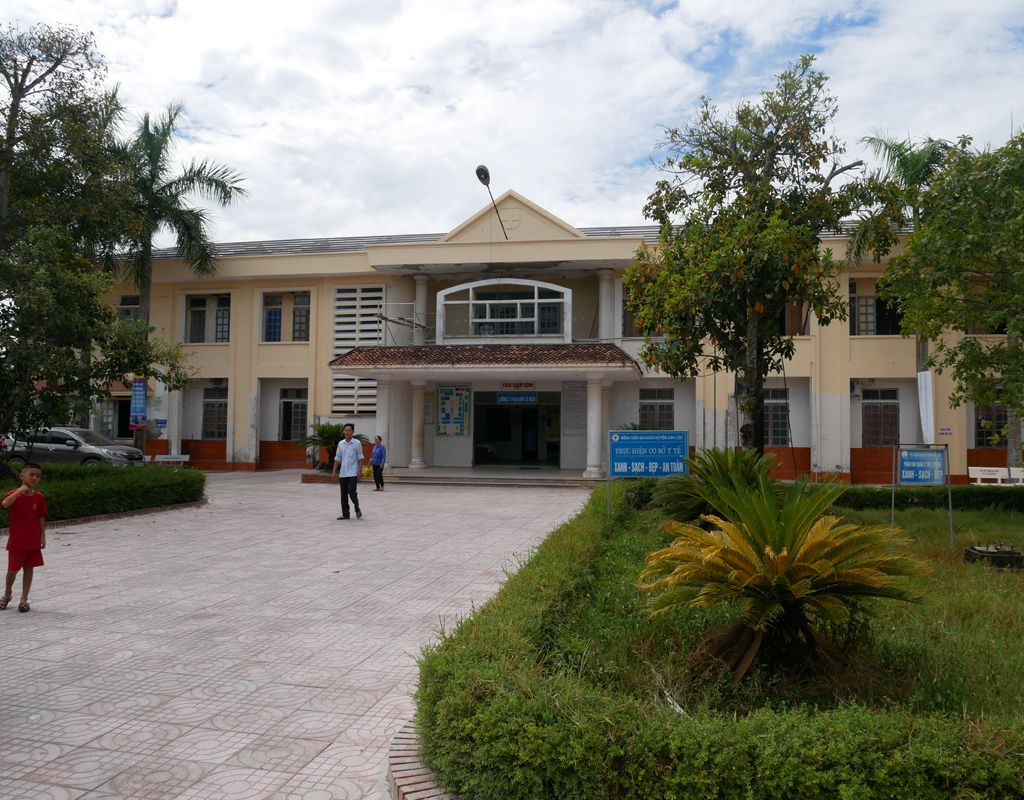

This hospital receives about 200 patients a day at OPD and about 20 patients are seen for infectious diseases; 150 patients are hospitalized daily.
Dr Tran Van Hoang, Head of Communicable Diseases Department and Dr Phan Dinh Dong, Head of General Medicine Department, explained that before the project, cases of acute undifferentiated fever, reporting headache, myalgia, conjunctivitis and skin hyperemia were generally diagnosed as scrub typhus that is a common cause of such signs in Northern and Central Vietnam [*]. This disease is a Rickettsiosis transmitted by fleas, mites, ticks, and lice, more common in farmers from April to May. Complications are similar with those observed in Leptospirosis, including jaundice, acute respiratory distress, and renal failure.


Dengue is rarely identified in this hospital and generally patients confirmed for dengue have travelled in other provinces.
Fortunately scrub typhus is generally treated with doxycycline that is also recommended for Leptospirosis treatment.
Medical Doctors are now aware of the risk of Leptospirosis that is now commonly suspected according to the case definition and Medical Doctors are especially aware of environmental risk factors. The ECOMORE study is rigorously implemented.
Dr. Phan Dang Than from Public Health Department at NIHE supervised regularly project activities in Ha Tinh province; he visits selected hospitals and CDC every month to check data quality and to arrange logistics for specimen shipping to NIHE bacteriology unit.


As a result, from October 2018, 347 patients (199 women and 148 men) have been tested and 81 showed a positive ELISA test.
[*]Trung N, Hoi L, Dien V, Huong D, Hoa T, Lien V, et al. Clinical Manifestations and Molecular Diagnosis of Scrub Typhus and Murine Typhus, Vietnam, 2015–2017. Emerg Infect Dis. 2019;25(4):633-641. https://dx.doi.org/10.3201/eid2504.180691
Knowledge Translation
This mission gave also opportunity to organize the mid-semester review of the progress of the project while this year, the rainy season not yet started in Ha Tinh province (>2months without any rainfall).
Participation of Prof. Dang Duc Anh, Director of NIHE, of Dr Tran Nhu Duong, Deputy Director of NIHE, of A/Prof. Le Thi Phuong Mai, Head of Dept. of Public Health at NIHE, of Dr Tran Xuan Dang, Deputy Director of the Provincial Health Department in Ha Tinh province and of Dr Nguyên Long Tam, Director of Ha Tinh CDC (formerly PPMC), shows the high level of interest for ECOMORE project.
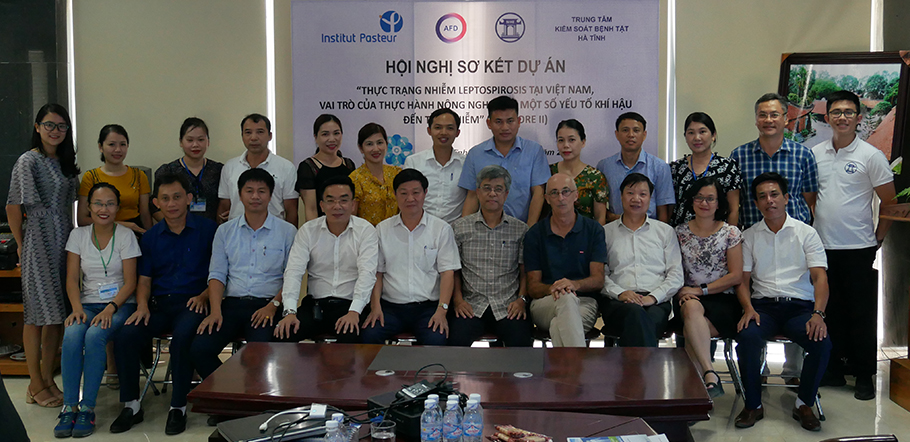
Dr Le Thi Phuong Mai, is the Head of the Public Health Department at NIHE and the team leader for ECOMORE project implementation; she made a comprehensive presentation of results already documented, in the 3 provinces involved in the study, Ha Tinh, Thai Binh and Can Tho; after that, she made a detailed description of preliminary results analyzed in Ha Tinh province.
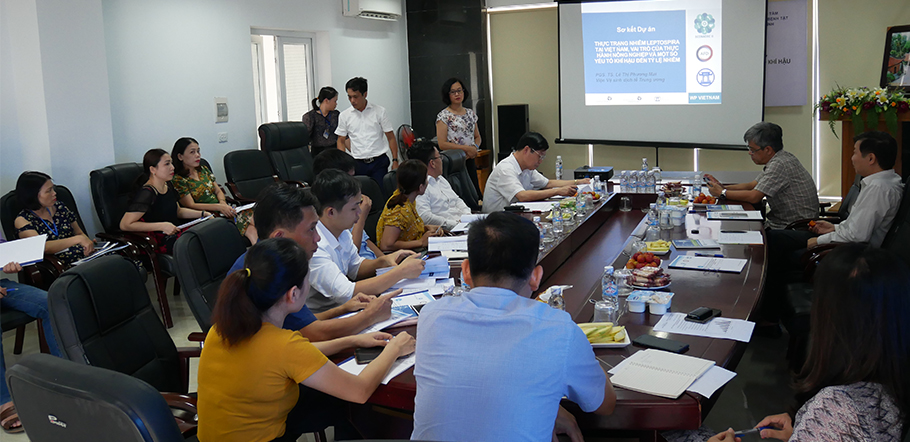
Until end of May 2019, the largest number of cases have been identified in Ha Tinh province, 735 cases vs. 506 cases in Thai Binh province and 589 cases in Can Tho province. The number of possible cases identified increase regularly, from 7 cases in October 2018 to a peak of 179 cases in April 2019…in the dry season. This shows the very good work of NIHE team for awareness and regular follow-up (monthly visit) at hospital level and also stressed the motivated participation of Medical Doctors in hospitals.
An average of 30% of suspected cases were tested positive by ELISA among which near 40% are confirmed by MAT (Micro-Agglutination-Technique).
Surprisingly, 55% of ELISA positive cases are women.
It is remarkable that the health staff in Can Loc and Cam Xuyên district could collect a second specimen within 2 weeks, respectively for 99% and 88% of sampled patients.
Knowledge Translation is a reality for the ECOMORE Vietnamese component; after the presentation, the CDC team, the Director, the ECOMORE coordinator, the Lab technician and the Heads of 3 Hospitals Management Units, discussed and shared progress and difficulties encountered with the NIHE team.
It should be noted also that all people involved in the project in Ha Tinh province and NIHE team are informed in real time on suspected cases and lab testing results through ZALO social media platform. Privacy is protected and unlike Facebook, if people are able to see a post, they are also able to read all the comments on the post and to see who react to the post.

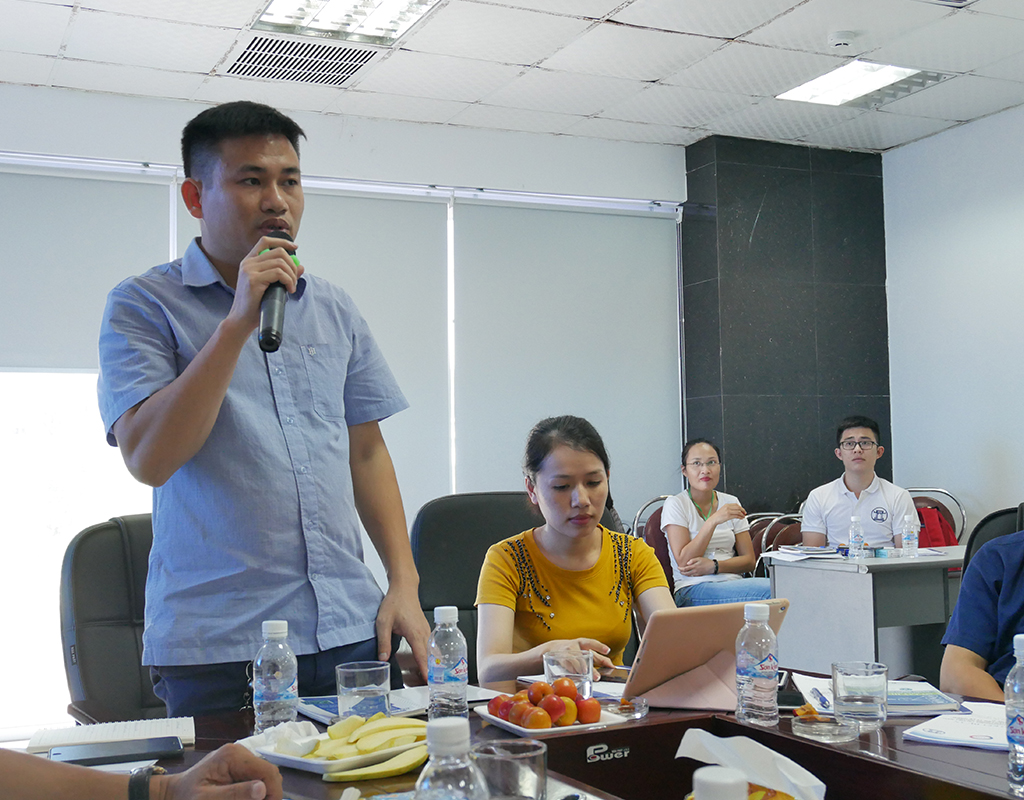


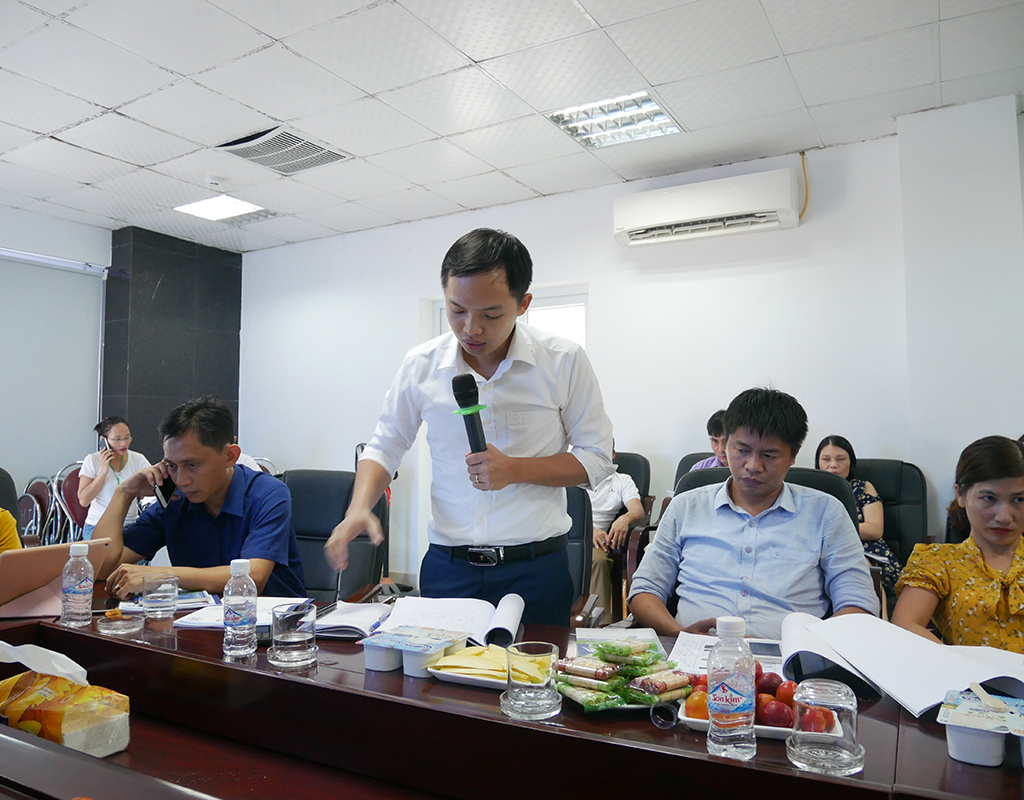

It is worth mentioning that the success of this study is closely linked to the actual involvement of key persons at NIHE level and to the regular information and feedback to the Medical Doctors participating in the project; it shows that the work made at hospital level is crucial for improving public health.
Finally this meeting gave the opportunity to present the “Leptospirosis” notebook, prepared by NIHE to be distributed to all Health Care Staff in the hospital participating in the ECOMORE study.
The notebook reminds important facts about Leptospirosis disease, cause, transmission, symptoms, risk factors and preventive measures…because it was acknowledged that this disease is not considered in detail during medical studies cursus. The booklet explains also scoring and algorithm of lab testing to suspect and to confirm the disease. It reports as well testimonials from Medical Doctors involved in the project who have discovered importance of Leptospirosis as responsible of undifferentiated fever. (Click the image to browse the Notebook)
The followings are some field observations which could explain some non-expected preliminary results before deeper statistical analysis.

Ke Go Lake : low level of water in June 2019

Pumping station for irrigation
The season is extremely dry but the Ke Go lake ensure an efficient irrigation system
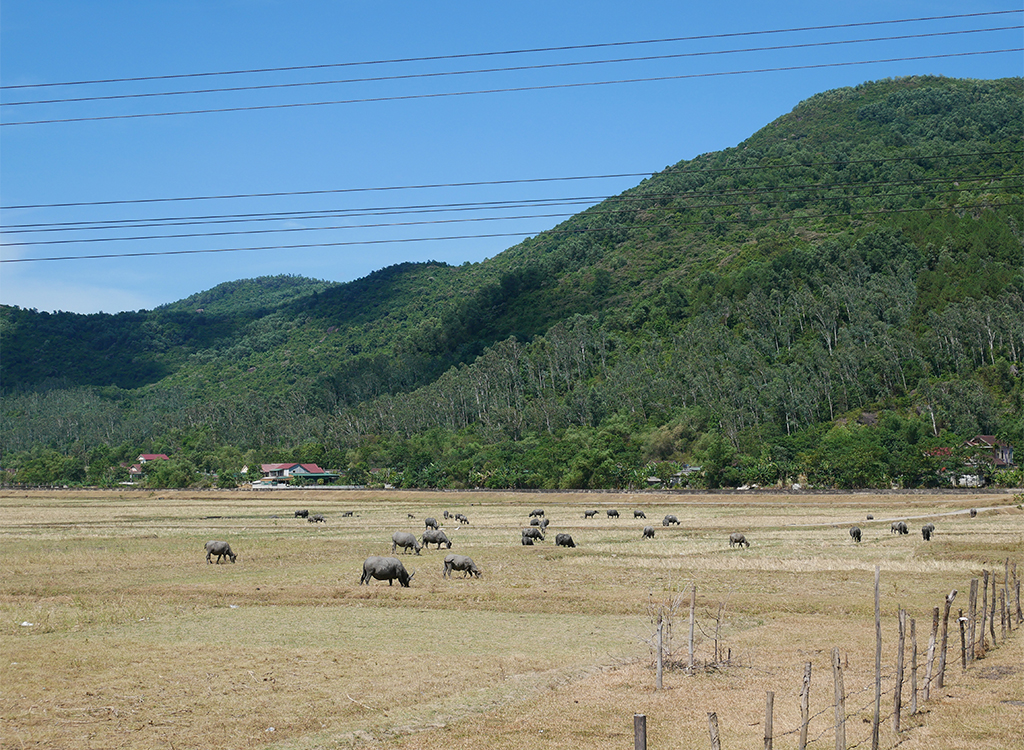
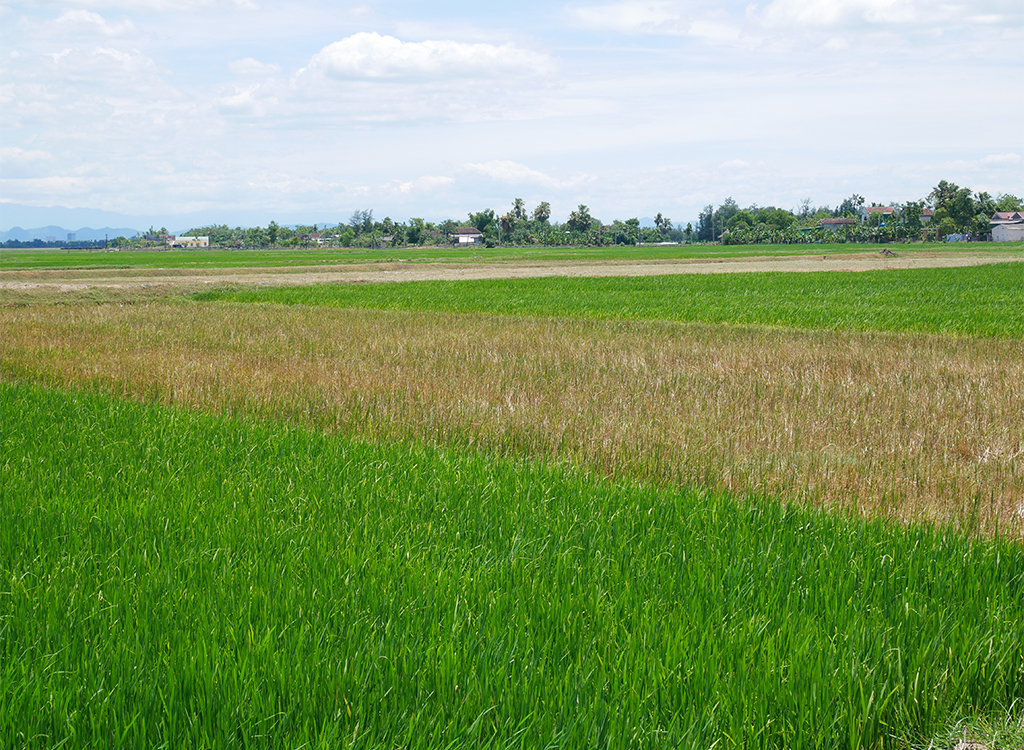
Dry fields alternate with muddy rice field during this drought
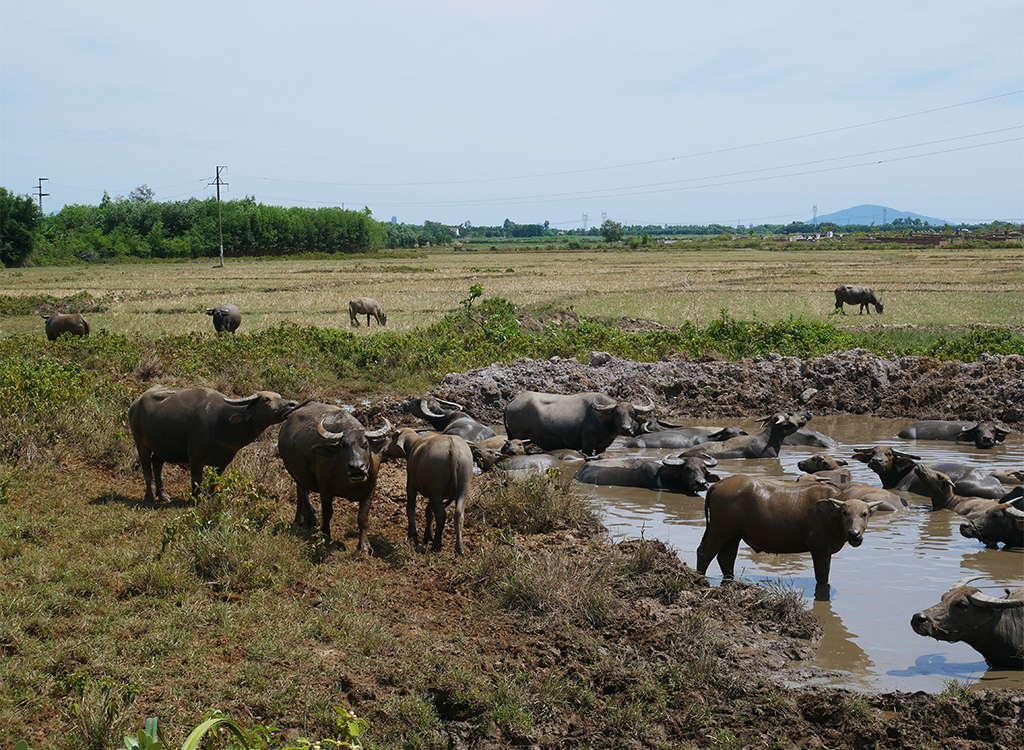
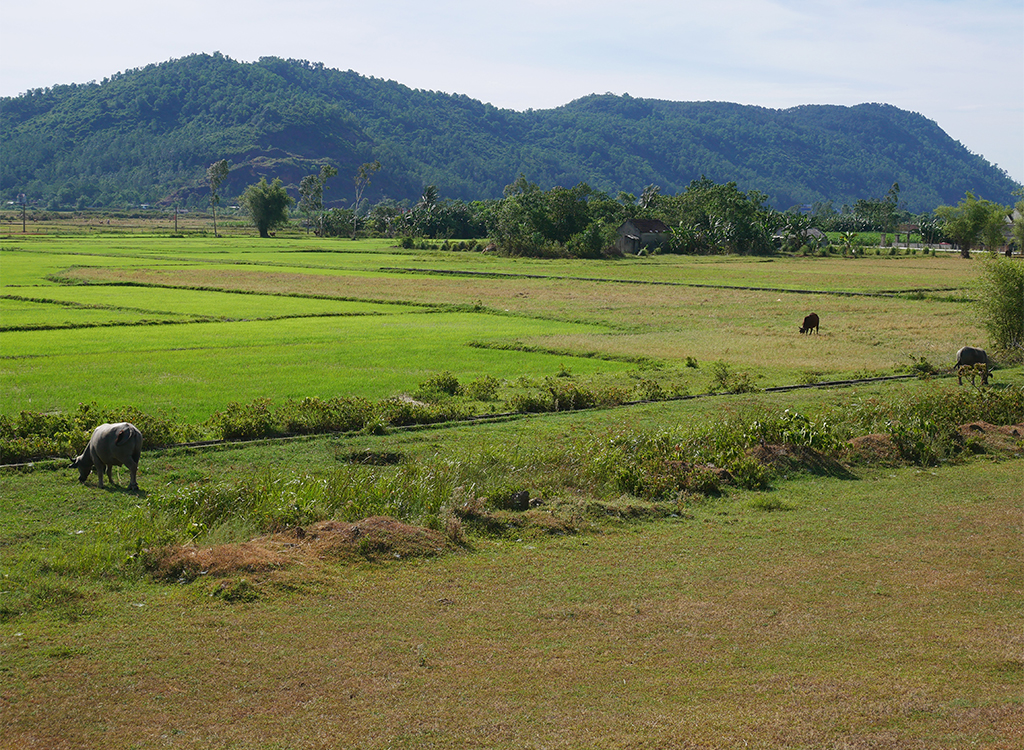
A high level of livestock infection could increase the risk to human health due to contact with infected animals or a contaminated environment by the urine of infected animals
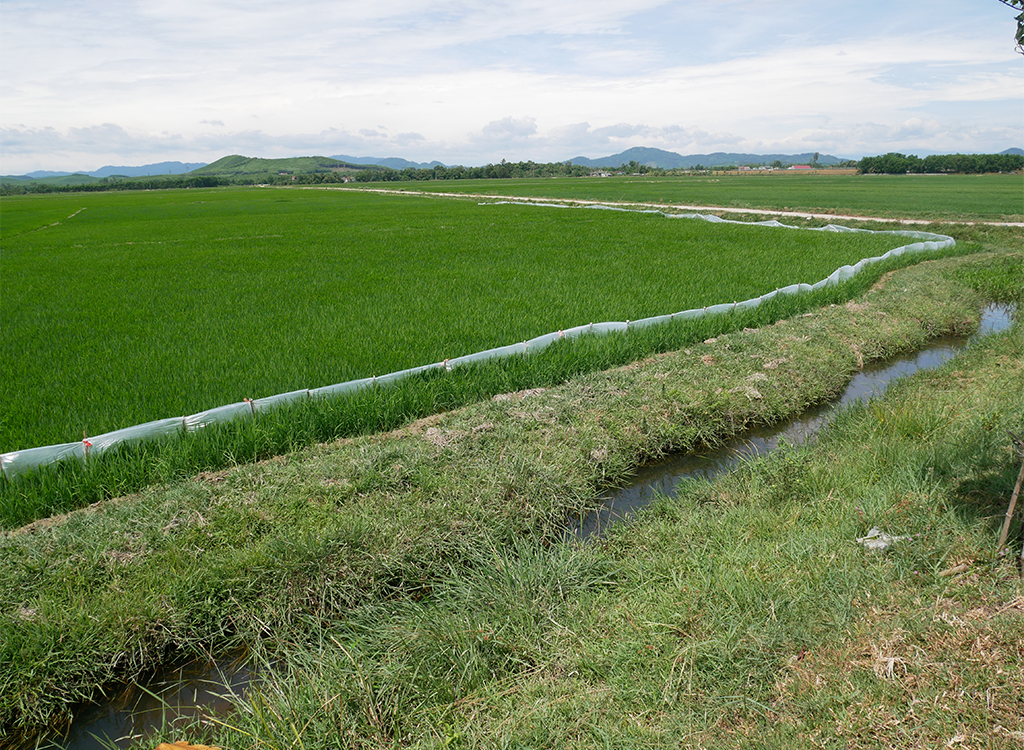
Rats are a concern for farmers who must protect rice fields against rodents by plastic fences

Women work more than men in rice field?



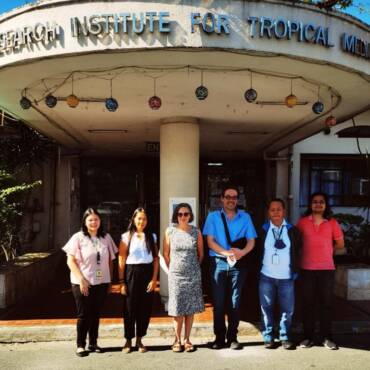
Add Comment